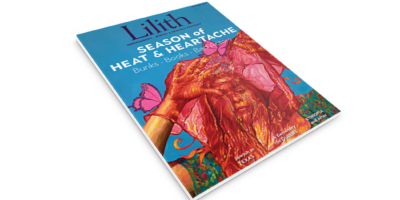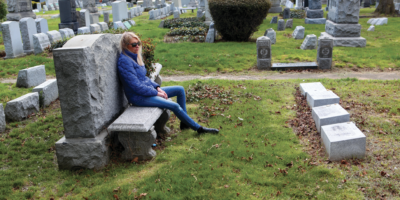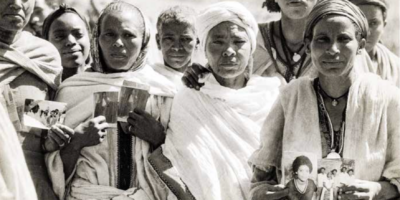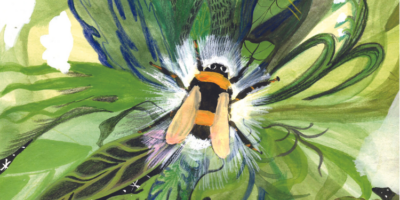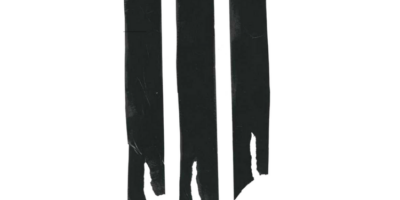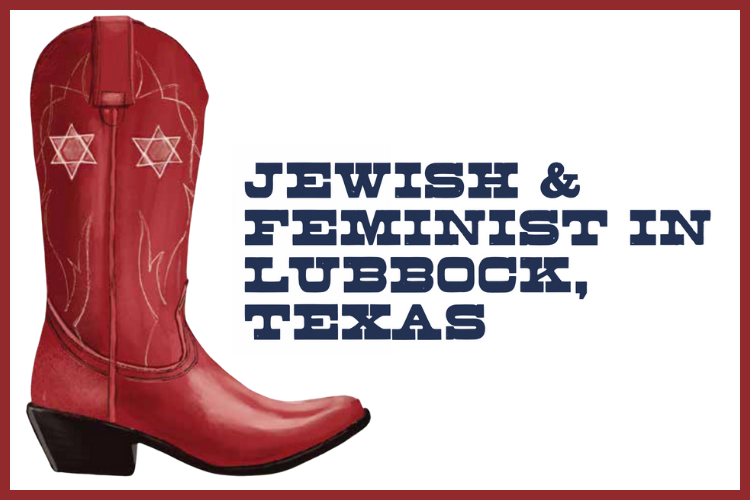
Jewish & Feminist in Lubbock, Texas
Lubbock, Texas is, by far, the least Jewish place I’ve ever lived.
If you’re from one of the coasts, as I was, you might have some misconceptions about Lubbock if you’ve even heard of it. You likely assume it doesn’t snow (we get about one snowfall a year), that everyone loves football (various people I know—myself included—have never been to a game), that it’s full of tumble- weeds (okay, I’ve seen a few). You’d be right to guess there’s not much to do, that it’s windy and dry, and that it smells, some days, like the biggest cow fart you could possibly imagine.
You’d be wrong to guess there are no Jews. But there aren’t many of us.
I moved here three years ago, at the beginning of Covid. I didn’t know I was moving for good. My then-boyfriend of three months and I had decided to “spend the pandemic”—which we thought would last about a month, maybe two—together in Lubbock, where he lived and worked as an academic. So he and my dog and I drove about thirty hours from New York City, where he’d come to visit me over spring break, to West Texas. We discovered we loved living together, so we rented a house. “My” dog became “our” dog. We got engaged and then married. And I, finally, got a Texas driver’s license, because it turns out I live here now.
As you might expect, moving from New York City to Lubbock was an adjustment, compounded by the fact that the pandemic made it so hard to meet people. I wasn’t used to the way it looked (flat and brown), to driving everywhere, to such a slow pace, to having so few interactions with strangers each day. I certainly wasn’t used to living somewhere with so few Jews.
Lubbock is a mid-sized city of just over 260,000 residents; for all those people, there is a single synagogue with around 50 members. (There are, by comparison, dozens of churches.) Brandeis University Cohen Center for Modern Jewish Studies estimates the Jewish population of “Lubbock & Nearby Counties”—which total close to 459,000 people—at 2,200, or around 0.5%.
Moving somewhere that wasn’t flush with Semitic energy gave me plenty to complain about (but then again, what doesn’t?). Texas Tech University, where my husband is a professor and I adjuncted for several semesters, doesn’t give time off for any Jewish holidays, though there is a day off for “Easter Monday,” which I had never heard of before. Strangers don’t offer “Happy Chanukah” or even “Happy Holidays, only “Merry Christmas”; no “Chag Sameach,” only “Happy Easter.” When I called a huge liquor store chain my first Passover in town to ask if they had Manischewitz, the salesperson asked, “What is that—a liqueur?”
My local supermarket’s macaroons are made with wheat.
There is, most gravely, the possibility of antisemitism, and the ever-present fear of it, even though I haven’t experienced it personally. A Jewish mom I know reported that a middle school classmate of her son’s had circulated a petition arguing that all Jews should be killed. A Jewish friend who’s a professor at Texas Tech overheard one of her students say on Zoom—thinking incorrectly that her microphone was muted—“Well, she’s a Jew.” It’s possible I haven’t experienced antisemitism because I am careful about who I tell that I’m Jewish (and, unlike a person of color, I can pass). I have not, for example, informed my neighbor, whose truck sports aggressively conservative bumper stickers. She’s kind to me, and I’d like to keep it that way.
At first, when I moved here, I routinely—enviously—Googled the number of synagogues in other cities. Santa Fe, New Mexico, for example, which is a four-and- a-half-hour drive north of us, has three synagogues and a Chabad for just over 88,000 people (one synagogue for every 22,000 people, as opposed to Lubbock’s one-to-260,000 ratio). I lamented the fact that my hopeful future children would grow up somewhere so goyishe.
Three years later, I won’t say these feelings have completely evaporated. But early in 2021, I went to the synagogue for the first time, looking to make friends. Now, I’m finding that, perhaps paradoxically, I feel the most Jewish—and the most connected to my faith—in Lubbock I’ve felt since childhood.
I grew up in Nassau County, Long Island, which, at 14.2% Jewish, is percentage-wise about 28 times more Semitic than Lubbock. The synagogue I attended had around 500 members when I became a bat mitzvah in 1998. But on High Holidays, it became so full the already sizable room was expanded into the congregational hall behind it, usually cordoned off with a removable wall, and a tent was erected on the lawn outside so the service could be piped to overflow congregants via speakers.
I felt really Jewish. I went to Hebrew school, which I loved, twice a week up through the year I became a Bat Mitzvah; I continued attending weekly sessions with the rabbi until Kabbalat Torah, or Confirmation, in my sophomore year of high school, after which I was dejected to leave my temple-based education behind. For a chunk of time in my childhood, I thought I might like to become a rabbi when I grew up; I led the charge of Jewishness in my family in certain ways, like requesting that we have Shabbat dinner on Friday nights, which we did for years. I was not a happy high schooler, but I remember walking through the halls thinking how grateful and lucky I was to have been born Jewish.
This feeling started to fade in college at Princeton University, which felt far less Jewish than my northern Long Island hometown, though I haven’t been able to find any stats. I took Hebrew as a foreign language for a year; I went to the Center for Jewish Life for holidays; but Judaism faded somewhat from my life nonetheless. Mostly, I attempted to assimilate by donning brightly colored polos (though I couldn’t bring myself to pop the collars) and rounding out my Long Island accent, for which I was mocked. I was so success- ful that I am now physically incapable of pronouncing “orange” the way I did growing up: “ahh-ringe,” as compared to my new version, “oar-ringe.”
By the time I moved to New York City right after college, I was feeling lost in my relationship to Judaism. For 13 years, I moved back and forth between Manhattan (15.8% Jewish) and Brooklyn (19% Jewish), but being surrounded by “my people” didn’t give me the sense of belonging it had as a child. I bounced from synagogue to synagogue—B’nai Jeshurun, Romemu, Congregation Beth Elohim—but never found one that felt like home. Maybe this had to do with the fact that I was rarely if ever willing to pay the exorbitant membership fees: not an issue in Lubbock.
Often, I found myself hovering on the outside of cliques at synagogue social events—dating mixers, onegs— awkwardly trying to ingratiate myself. This could have easily been something about me; clearly the people who made up the cliques had figured out a way “in.” But I felt adrift. Not Jewish enough, maybe—embarrassed, for example, when I fumbled the words at a prayer on a Friday night that hadn’t been part of my childhood synagogue’s rotation, but that everyone else seemed to know.
The first time I went to shul here in Lubbock, the synagogue’s president was sitting in the back row. As a newcomer, I felt shy, but because the congregation is so small, she recognized immediately that I was new and greeted me warmly. After services, I told her I’d love to volunteer in whatever way the synagogue would have me, and she suggested I would soon be inundated: “You’ll be sorry you offered!” I became involved, reading books to young kids, and then more involved. I now lay- lead services (our rabbi commutes from out of town), host onegs afterward from time to time, attend Shabbat dinners, and, this past fall and spring, served on the search committee to find a new rabbi. The president invited me and my husband over for Seder last year, and we met a couple who have become our close friends; in April, I officiated the naming ceremony for their brand-new kid. I don’t think there is a single person in the synagogue I haven’t spoken with at least once.
There’s nothing like being an outsider to put into relief who you are
But feeling really Jewish here isn’t limited to the times I’m actively engaged in synagogue life. Even when I’m grocery shopping or going to the dentist, I’m aware of my Jewishness: there’s nothing like being an outsider to put into relief who you are. I spent six years in my twenties living on the Upper West Side, and I have never felt younger or more fashionable. (Living in Brooklyn before and after, not so much.) My dark curly hair is an anomaly in Lubbock—people actually comment on and compliment it! And, though I’m aware of the possibility of antisemitism, my fears have as yet been unfounded. After several semesters rigorously avoiding mentioning to my Texas Tech students that I was Jewish, I mentioned in the fall that I had to miss class for Rosh Hashanah. One asked with genuine curiosity what Rosh Hashanah was, and I got to explain it. It’s possible I’m the first Jew some of them have ever met—the one who might interrupt any stereotypes they’ve developed or been taught—and isn’t that a privilege?
My husband and I are expecting our first child this fall. Though we may not live in Lubbock forever, I feel comforted know- ing that—God willing—our daughter will have her baby naming at our small, cozy synagogue, and will be welcomed into the Jewish faith by an intimate, kind, and supportive congregation. That I’ll have a place to bring her on Friday nights where people coo over her and know her name; that I have—already—new-mom and mom-to- be friends I’ve met through shul to walk alongside into this new phase. I imagine we will enjoy being integrated into—even needed by—Lubbock’s Jewish community, and the sense that we don’t need to fight for our place, but, rather, that we belong.
Jessica Gross is the author of the novel Hysteria. Her nonfiction has appeared in The New York Times Magazine, The Los Angeles Review of Books, The Paris Review Daily, and elsewhere

